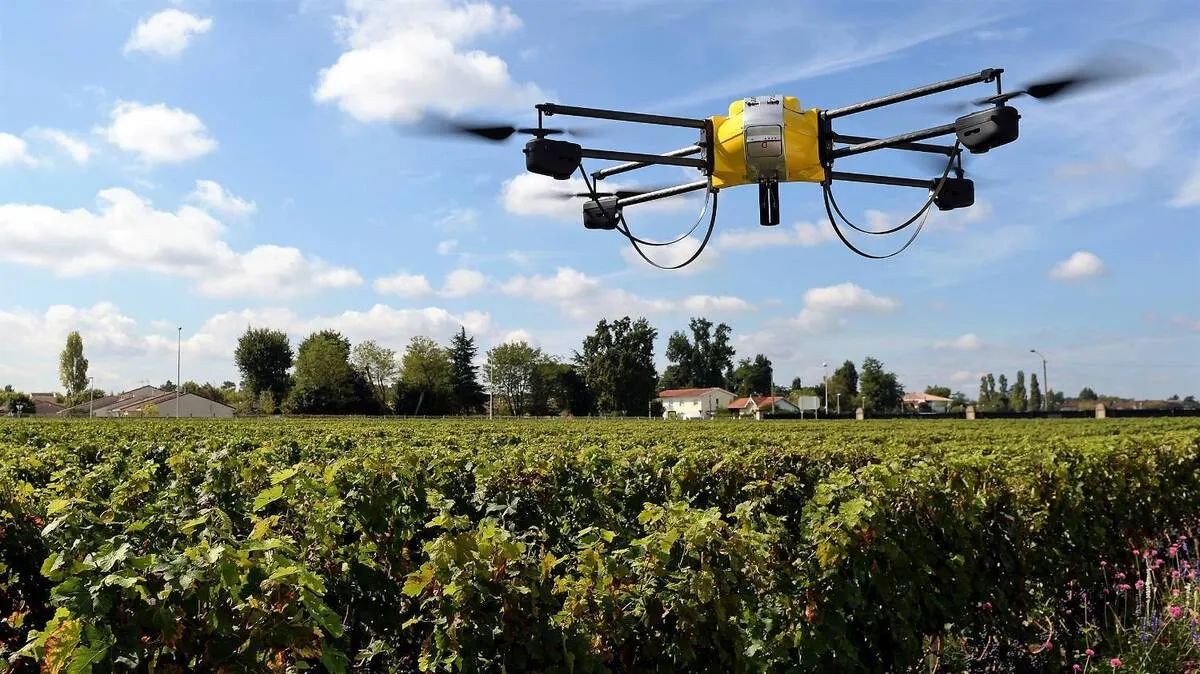Iran-Made Propellers Used in Drones for Agricultural Applications

According to the information center of the Iranian Vice-Presidency for Science, Technology and Knowledge-Based Economy, the project aims to redesign and manufacture new electrical engines that increase the drones’ productivity by 1.5 to 2 times, its flight durability and the ability to carry heavier cargos.
The new generation of engines produced by the Iranian company enjoy specifications like innovative design in brushless engines, much higher torque output compared to similar models of the old generation, much higher power density compared to similar models of the old generation, highly small and compact dimensions, lower weight compared to the old generation, simplicity in manufacturing and production by SMC technology, high power-to-weight and torque-to-weight ratios, the ability to use two rotors in one engine, very low material consumption, and economical mass production.
Relying on its native power and know-how, the company has designed and tested four prototypes of the engine which yielded acceptable results and can lead to mass-production.
Iran has made good progress in manufacturing different drones used for various purposes.
Earlier this year, an innovative company in Iran succeeded in making special spraying drones and pollination modules for artificial fertilization in gardens and farms.
“These drones can be used for spraying, fertilizer spraying, foliar spraying, monitoring and spectrometry. They enjoy the capability to fly based on the map of the farm or garden. And if they are used in uneven terrain, foothills, sloping hills, and non-flat terrains, their radar module can be used which keeps constant the distance between the drone and the product surface,” said Arefeh Razzaqi, a researcher working for the knowledge-based company.
She described 30% saving in agricultural inputs and 97% reduction in water consumption as advantages of using these drones, saying, “The drones produced by our company are able to spray one hectare of agricultural land in seven minutes.”
“These drones are designed with 10, 15, 20, and 30 liter tanks, and their nozzles have particle adjustment capability, and can adjust the diameter of poison particles up to 200 microns.”
Noting that the drones are electrostatic and can charge particles, Razzaqi said, "This ability facilitates quick absorption of particles by the leaves of plants."
She added that the latest product of the company is pollination module which conducts the process of artificial fertilization in gardens, saying that the module’s prototype has successfully completed its mission in Iran’s walnut and date orchards.
4155/v





















